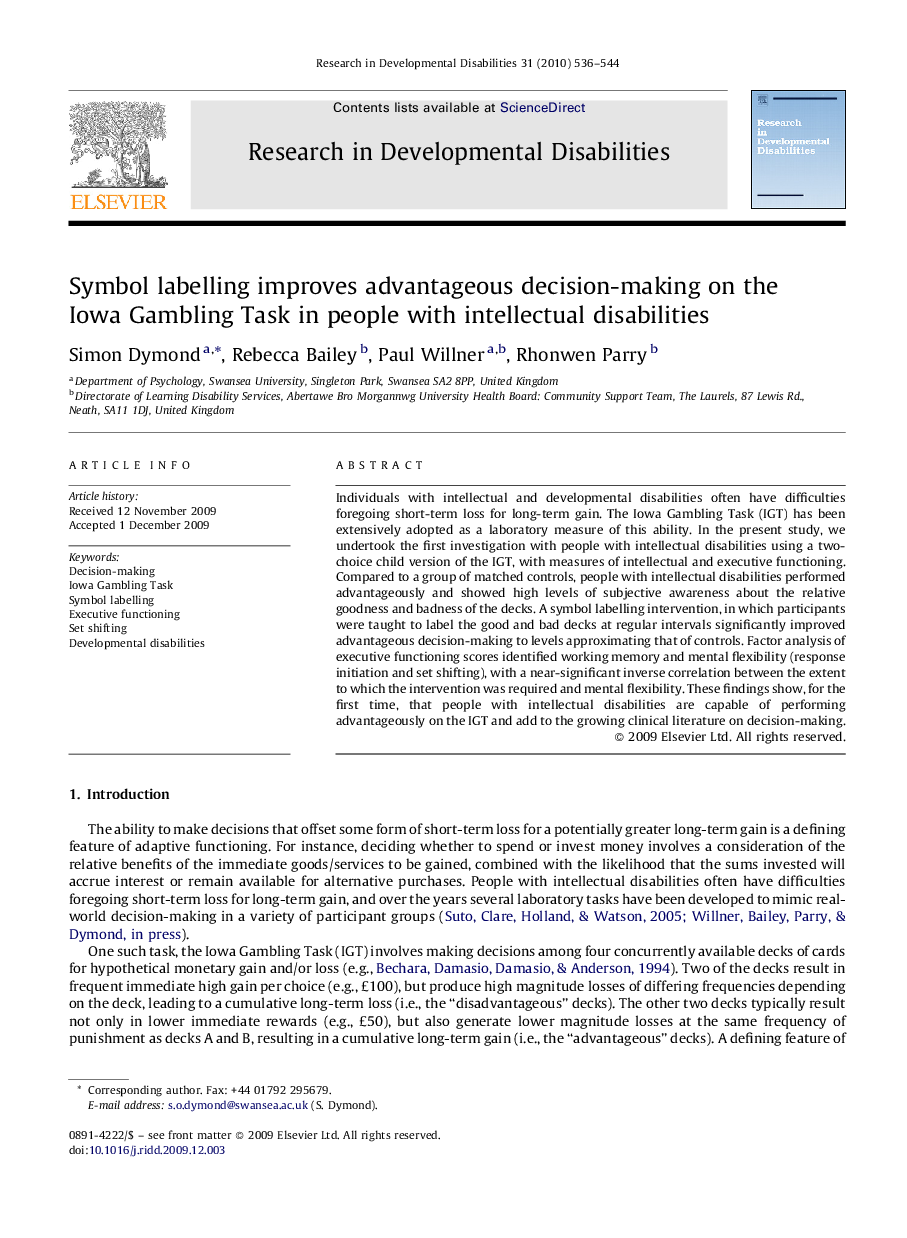| Article ID | Journal | Published Year | Pages | File Type |
|---|---|---|---|---|
| 372072 | Research in Developmental Disabilities | 2010 | 9 Pages |
Individuals with intellectual and developmental disabilities often have difficulties foregoing short-term loss for long-term gain. The Iowa Gambling Task (IGT) has been extensively adopted as a laboratory measure of this ability. In the present study, we undertook the first investigation with people with intellectual disabilities using a two-choice child version of the IGT, with measures of intellectual and executive functioning. Compared to a group of matched controls, people with intellectual disabilities performed advantageously and showed high levels of subjective awareness about the relative goodness and badness of the decks. A symbol labelling intervention, in which participants were taught to label the good and bad decks at regular intervals significantly improved advantageous decision-making to levels approximating that of controls. Factor analysis of executive functioning scores identified working memory and mental flexibility (response initiation and set shifting), with a near-significant inverse correlation between the extent to which the intervention was required and mental flexibility. These findings show, for the first time, that people with intellectual disabilities are capable of performing advantageously on the IGT and add to the growing clinical literature on decision-making.
